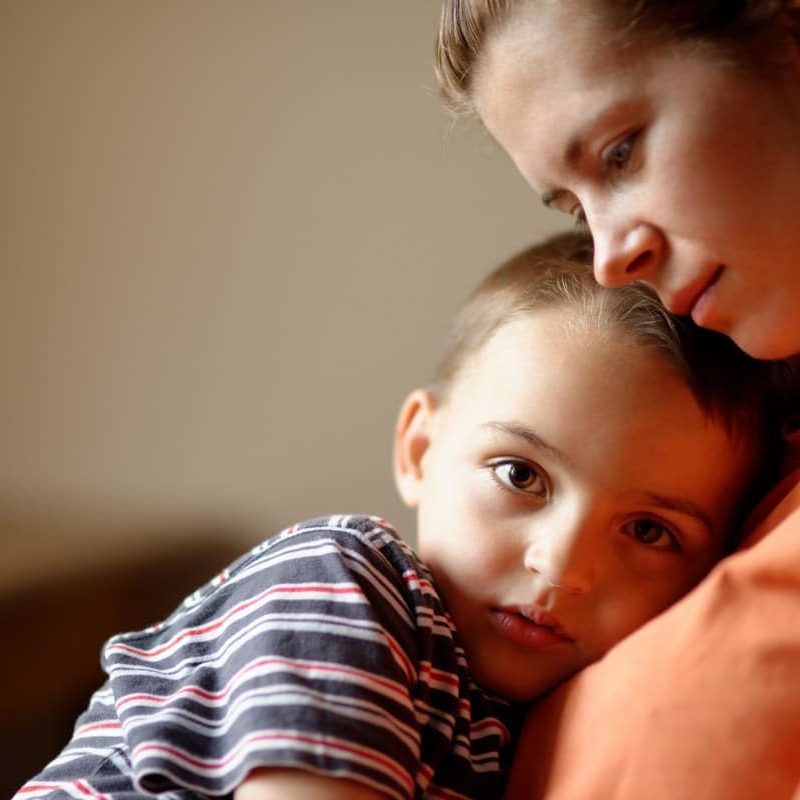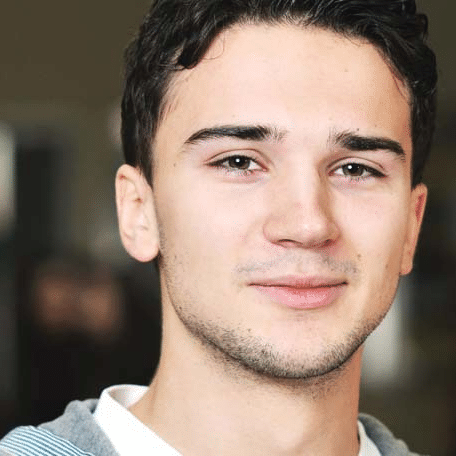Why Choose Dementech For Paediatric Epilepsy Treatment?

Same Week Consultations
At Dementech Neurosciences we endeavour to see you on the same week if possible. You no longer have to wait to be seen by a specialist. With your consent, our private neurologists can also share your full consultation report with your GP.
Patient Advisor Consultations
This is an opportunity to discuss your condition, and for the Patient Advisor to suggest the most appropriate treatment route to suit your specific needs.
Prices Starting at £485
Prices for an hour-long consultation start at £485. Each follow up appointment will cost £325. We always maintain full transparency about our costs.
Video Consultations Available
If you can’t make it to our clinic, we offer video consultations on FaceTime, WhatsApp, and Skype. We believe healthcare should be accessible, and make sure to facilitate consultations from anywhere.

What is Epilepsy in Children?
Epilepsy is a neurological condition that causes the brain to experience sudden bursts of electrical activity, leading to repeated seizures. These seizures can take many different forms, ranging from brief lapses in awareness to full-body convulsions. While epilepsy can develop at any age, it often begins in childhood or later in life, and it is generally considered a lifelong condition.
For both children and parents, epilepsy can be confusing and sometimes frightening. Recognising the signs of a seizure early and understanding what to expect can make a significant difference in managing the condition effectively. With the right medical care and support, many children with epilepsy can lead full, active lives without major disruption to their daily routine
Our Happy Patients
I have been pleased with the excellent service I have received to date: discreet, compassionate and very helpful in every aspect. All my concerns were listened to carefully, my questions answered accurately and relevant documentation sent/ received efficiently. The practice manager Ms S Butt could not have been more helpful and considerate. This encouraged me to have confidence in the staff and the Consultancy with the most important person in my life and I look forward to the Consultation and the results thereof.Anonymous
The clinic is very welcoming. I would especially like to thank Shakeela and Sobia who took good care of us and made sure my father in law was comfortable as he was very nervous. They were very polite. Dr was excellent. I would recommend this clinic. My father in law was very nervous when he arrived in the clinic but he left with a smile. This explains it all about the clinic. How wonderful they are. Thanks againAnonymous

Understanding Paediatric Epilepsy Seizures
It’s important to note that having just one seizure doesn’t always indicate epilepsy. Some people who have one seizure may never have another seizure again. Other conditions such as fever, diabetes and heart conditions can also cause seizures.
Seizures usually last 1 to 3 minutes. If someone has a seizure that lasts for more than 5 minutes, call an ambulance immediately.
Seizures can cause symptoms such as:
- A loss of consciousness
- Uncontrollable jerking movements (convulsions)
- Strange feelings, sensations and behaviours
- Breathing problems
- Falling suddenly
- Being unresponsive to noise for brief periods
- Seeming confused
- Rapid eye blinking or staring
- Feeling sleepy after the event
There are many different types of seizures, with some being more common in children than others.
Absence seizures
Absence seizures are most common in children, but have been known to affect people of all ages. During these seizures, the person will lose awareness of their surroundings for up to 15 seconds. These seizures can happen several times a day, and the person will have no memory of the event afterwards. They may stare into space, make small, jerking movements, or slightly flutter their eyes during the seizure.
Focal seizures
Focal seizures can be simple partial seizures (or 'auras') or complex partial seizures. These seizures begin in one part of the brain and will affect the part of the body that is controlled by that area.
Simple partial seizures typically involve:
- Unusual sensations or behaviours such as strange smells or tastes
- A strange, rising feeling in the stomach
- Intense emotional feelings
- Tingling feelings in the arms and legs
Complex partial seizures typically involve:
- Random body movements
- General lack of awareness
- Making strange noises
Tonic-clonic seizures
Tonic-clonic seizures are the most recognised type of seizure. In the majority of cases, the seizure will begin with a sudden loss of consciousness. This is called the ‘tonic’ stage. Then, the body becomes stiff and muscles start to jerk, which is known as the ‘clonic’ stage. It is also common for some people to turn blue, lose control of their bladder and bite their tongue.
After regaining consciousness, the person may feel drowsy and confused. It is also common to have some memory loss and a headache. Agitation can also occur while regaining consciousness.
Febrile convulsions
Febrile convulsions are different to epileptic seizures. They occur in children up to the age of 6 years. The seizures are generally harmless and associated with an illness causing fever, such as a viral infection.
Although frightening, these seizures are usually harmless and almost all children make a complete recovery afterwards. A febrile seizure usually lasts for less than 5 minutes. Signs of a febrile convulsion may include:
- The body becoming stiff
- Twitching of the arms and legs
- A loss of consciousness
- A loss of bowel control
- Vomiting or foaming at the mouth
- Eyes rolling backwards
Paediatric Epilepsy Diagnosis
In order to determine what may be causing your child to have epilepsy and experience seizures, our experts generally conduct a series of tests. The patient may be required to undergo some of the following:
- A neurological exam
- MRI or CT scans for imaging tests of the brain
- Blood tests to check for general blood levels, as well as any problems with blood sugar levels
- Electroencephalogram (used to test electrical activity in the brain)
- Lumbar puncture (spinal tap), to measure the pressure in the brain
Our experienced epilepsy specialists are always happy to provide support to both you and your child if there are any concerns around the types of tests they will be undergoing. We understand that to have a medical diagnosis at a young age can be difficult, which is why we ensure that you have a dedicated specialist across the course of the treatment journey.


Management of Epilepsy in Children at Dementech
At Dementech, we tailor treatment for epilepsy in children to each child’s needs, considering the type, frequency, and severity of their seizures.
Medication is usually the first-line treatment. Our specialists carefully select the right medicine based on your child’s age, seizure type, potential side effects, and ease of use. Most medications can be taken orally (tablets, capsules, or syrup) but other options may be available depending on your child’s needs.
Our team provides clear guidance and ongoing support, ensuring that your child’s treatment is effective, manageable, and suited to their daily life.
Get Paediatric Epilepsy Support Today
Meet Our Doctors
Our team of paediatric epilepsy experts in London provide expert care to diagnose, manage and treat epilepsy symptoms.
Dr Tahira Choudry – Consultant Neurologist
Epilepsy
Movement Disorders
Neurologist
Parkinson's Disease
Private Neurology
Dr. Maria Papachatzaki – Consultant Neurologist, MS Specialist
Epilepsy
Multiple Sclerosis
Neurologist
Private Neurology
FAQs About Paediatric Epilepsy
How can I help my child live with epilepsy?
Managing epilepsy in children can feel challenging, but Dementech’s specialists are here to support you. Understanding the condition, its risks, and the role of medication is key to controlling seizures. In some cases, children may experience improvements and eventually no longer need medication, but this should always be guided by a healthcare professional.
Regular check-ups and testing are important, as is helping your child understand their condition and any triggers they should avoid, such as lack of sleep. Administering medication correctly, at the right doses and times, is essential, and parents should always consult a specialist before giving additional medications, as some can interact with seizure treatments.
What support does Dementech offer for children with epilepsy?
At Dementech, we provide expert, personalised care for children with epilepsy. This includes quick access to assessments, comprehensive diagnostics, tailored treatment plans, and ongoing guidance for families. Our team supports both your child and your family, helping you manage seizures, understand triggers, and ensure daily life is as normal and safe as possible. Flexible consultation options, including video appointments, are also available.
What is the main cause of epilepsy in children?
Seizures in children can arise from a variety of factors, and sometimes a combination of them. In many cases, however, the exact cause is not identified. Some potential contributors to epilepsy in children include:
- Imbalances in the brain’s chemical messengers (neurotransmitters) that affect nerve signaling.
- Structural issues such as a brain tumour or stroke.
- Brain injury or damage resulting from illness, trauma, or other medical conditions.
Because causes can vary widely, a specialist evaluation is essential to determine the most likely triggers and guide treatment.
How do I know if a symptom is a seizure?
Seizures can vary widely in appearance, from full-body convulsions to brief lapses in awareness or unusual movements. If you notice sudden changes in behaviour, consciousness, or physical activity that are out of the ordinary for your child, it’s important to seek specialist advice. Early assessment helps ensure accurate diagnosis and timely treatment.
Will my child need medication for life?
Not necessarily. The need for ongoing medication depends on your child’s type of epilepsy and how well their seizures are controlled. Some children may see a significant reduction in seizure frequency over time, and under the guidance of a specialist, medication may eventually be reduced or stopped. Regular monitoring ensures any changes are safe and appropriate.
How quickly will my child be seen?
We strive to see all patients within the same week of their enquiry whenever possible, ensuring timely assessment and support for your child.
Our Services

Neurology
Services

Psychiatry
Services

Psychology
Services

Diagnostic
Services

Have a Question?
Speak to Paediatric Epilepsy Specialists From Our Clinic in London
Our team is on hand to answer any questions or concerns that you may have. Simply fill in the form below with your details, and we will get back to you as soon as possible.
Contact Dementech Today to Discuss Paediatric Epilepsy Support



